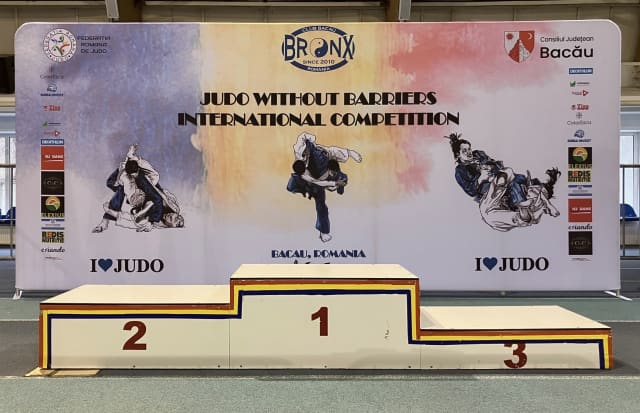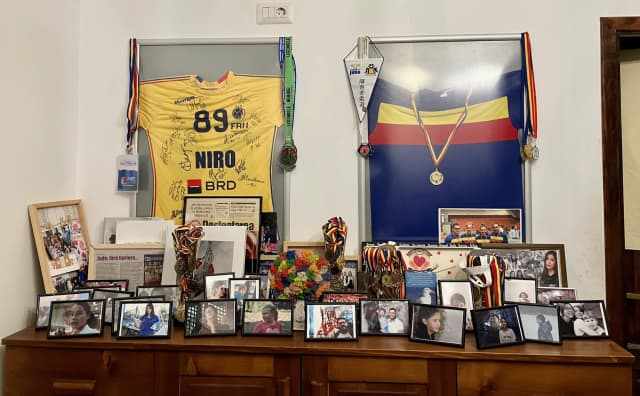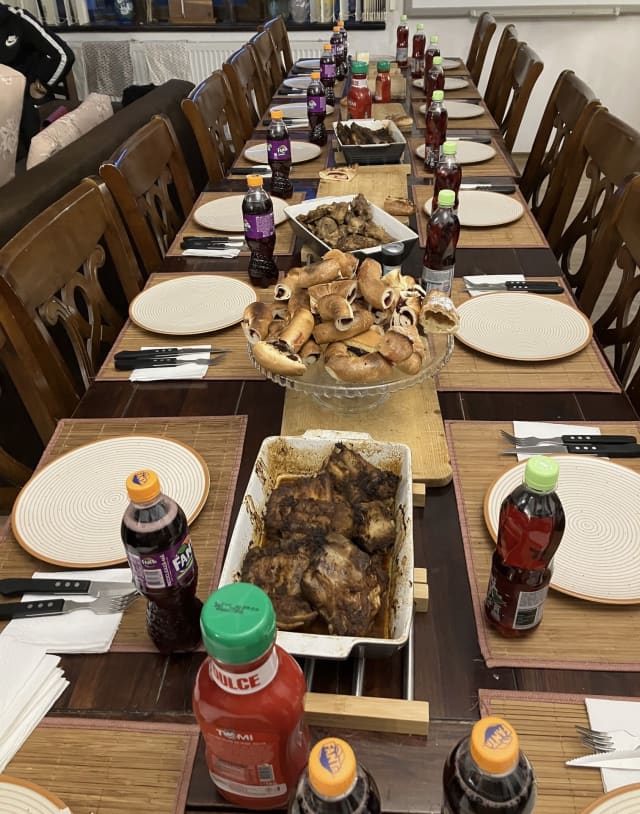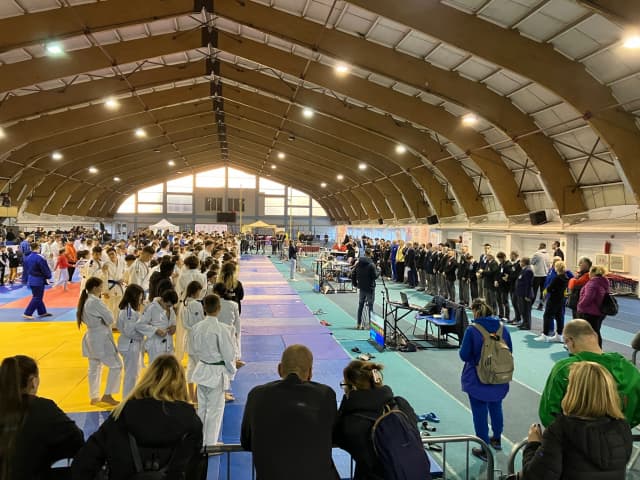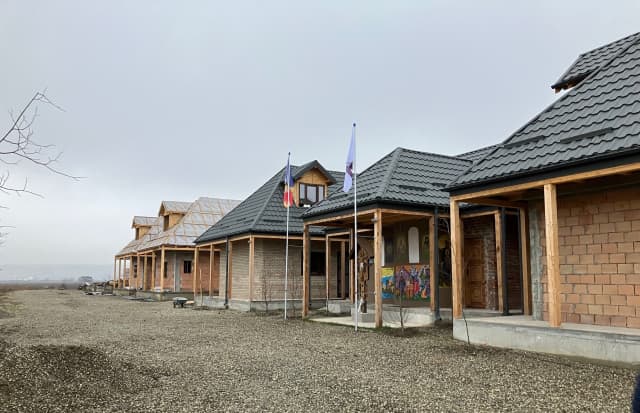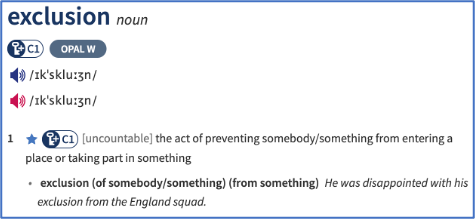-
We cannot be indifferent – The amazing accomplishments of Bronx
Article taken from the IJF website. All rights reside with the original author.Remarkable things happen when remarkable people have remarkable ideas! Daniel Zodian is a remarkable person and is the mastermind and drive behind Bronx People, a care-giving organisation based in Bacau, Romania.Daniel Zodian and his wife Ana were building their own family home in 2017 but during the build the motive changed and Daniel decided to open the house as an orphanage. In 2018 their dream was realised.
Daniel told us, “‘Bronx’ is a name associated with negative connotations aligned with poverty in the USA. This is a contradiction I decided to highlight. I am committed to showing that when people discover our version of the Bronx it will only bring happiness. It was that idea that gave rise to the name ‘Bronx People.’”
Bronx People is an NGO and registered charity re-homing and caring for children from state-run orphanages in Bacau. Daniel was teaching judo at the orphanages and came up with the idea of creating a special home for judo children. There were 26 in the first group and now, with a lot of work from a few key people, there is a very positive system in place.
When entering the house there is noise, lots of it, but that includes music, some of it being played by the young residents on guitars or other instruments. There is art and photography on the walls and a range of family photos that show happy Christmases, judo successes, days out, just with a much bigger family than most of us will ever experience. There are the joyous smells of home cooking and there is always someone doing homework, somewhere in the house.
Photos and sports memorabilia in the Bronx People houseAlongside Daniel and Ana there is Dana Varga, a friend of Daniel’s who was preparing for her police academy exams. Daniel had been helping Dana with her physical preparation and training but as Dana said to us, “In the end my eyesight let me down and I could not pass, so I decided to stay at the house and support Bronx People.”Gabi Iftimescu was a student in Bucharest but says she really wasn’t happy there. “I came back home to Bacau and with free time aplenty I looked for things to do. I saw a shoebox campaign online with the idea of creating Christmas presents for delivery to children. I wanted to prepare something for them and I went to the dojo in town to deliver mine. I was told to remove my shoes and go through the dojo on to the mats. I didn’t ask why but I met Daniel and other volunteers in the dojo. I was attracted by the social side of their activities. They were so committed to gathering resources to support children, especially those with emotional issues and other social problems.”
Agriculture at the Bronx People house. A lot of fresh food is grown to be used by the extended family.Bacau is not a place with broad opportunities but the Bronx People group finds opportunities for everyone. Gabi continued, “I was passionate about writing and photography and also social sciences and so I changed my life completely and went to study in Brasov, social sciences. I finished and graduated and since then I have been living and studying in Bacau.”During our interviews we hear a shout, “Alex!” It’s really loud. There is no speaker system in the house but a call from Daniel is one responded to by all. He keeps the schedules and programmes and chores in order and everyone works for everyone. Cooking, growing food, painting walls, cleaning the yard, it doesn’t matter eBay needs to be done, there is always someone to do it for the benefit of everyone.
Mealtimes require major organisationDana said, “We have to work in other jobs outside the home. I’m working my way up in economics since my studies. We have to work in other jobs in order to support ourselves. We live in the house as the parents of the group we look after but there is no money to pay for that. Some of the older ones have small jobs at the local sport hall but in general they are studying and living and just being children.”There is some money coming from sponsors. Daniel used to have a construction company, which he doesn’t run any more, but he had built a strong network of contacts. He built the first house and the summer dojo himself, with the help of some of the children. Everything that is built for the purposes of learning, leisure, sport and fun is open to the local community as well as those who live in the Bronx People project. This way the community and even some people from further afield can see the good that is being done here. Spreading the word about the project brings some financial assistance.
There are many opportunities for personal development. Daniel says, “Practising judo brings discipline, motivation, friendship, and having access to this very different set-up from the state system. The staff in the state system are there to work and earn wages. We could even consider the children there are treated like documents or numbers with a need for the correct boxes to be ticked and the signatures to be obtained. It’s not like that here.”
Daniel finished nursing school and also studied architecture. By law there must be a qualified nurse on sight and also a social worker and therefore Daniel and Dana have completed studies which fulfil that brief.
Daniel lets us see a little of his personal motivation, “We cannot be indifferent. We are human and so we must care. I consider what we do as the desired norm’, shouldn’t everyone care this way? For me it’s normal, it’s a lifestyle choice to live with goodness.
Daniel Zodian showing us a traditional brick-built Romanian kitchen in one of the new Bronx People houses.Actually I think many people would like to do the things we do but they don’t have the courage or the lifestyle or perhaps the innovative thinking to really give the support they believe they should. By accepting sponsorship we can help people to contribute and feel good, to know they are part of a positive change for young people who really need that.”There is magnetism about the house. Once people visit, they want to return and do more. One idea to make use of all the good feeling and the desire to help came in the form of a new judo tournament. Bronx People wanted to run a big judo competition to attract many people and to publicise our project. Maybe it could even attract more sponsors.
Denisa Deliu is a judoka and coach who has worked with the EJU and IJF in the past and has a lot of experience. She agreed to become the competition manager. In 2022 the event attracted competitors from 6 countries, including a huge, high level team from Turkiye. The event was a great success and will run again later this year.
The 2022 Bronx People ‘Judo Without Barriers’ International TournamentInformation about the tournament information, ways to donate, social inclusion projects, other fundraising activities and the impact Bronx People is having on the community can all be found on their website:Gabi said, “Seeing what we do, via the website or in person, not just in the house but beyond, is important. We also link with other NGOs to do joint projects which impact the community; long-term sustainable projects, many of which can apply for finance from government or private donors. There are projects in schools with children who have mental disabilities and with a lot of our projects we find there are many opportunities for us to offer access for new children to judo. There is a lot of competition for private funding and demonstrating that Bronx People can have long term impact is tough but we are getting there.“
Daniel told us about what is in pipeline too, “Mr Vizer has supported us to begin building a special house close to our first one, specially for mums who are raising children with difficulties. We are also now building a medical centre and a house designed to cater for the needs of children with disabilities. It’s becoming a small village rather than just our original house but funding all that is really challenging. We won’t stop, though, there’s too much good being done and the benefits for these young people are life-changing.”
The new houses are under constructionDaniel Zodian and his team are living a difficult and unpredictable life, one filled with challenges and sad stories but they are proving that their adherence to judo values and their determination to be part of the solution, is the right way to support young people who need more love and care in their lives. Daniel only sees the positives in his lifestyle.All donations and support will be gratefully received. If you’re ever in the area, go and say hello and you too will feel inspired!
-
Some comments on Divisioning
Hello judokas,
 Recently we received questions from quite a number of judo coaches, teachers and other people dealing with A-Judo, asking us about the correct way to run a divisioning session: What should be in there? What is the actual purpose?
Recently we received questions from quite a number of judo coaches, teachers and other people dealing with A-Judo, asking us about the correct way to run a divisioning session: What should be in there? What is the actual purpose?Remember that all our judoka are amateurs. The Monday after the tournament, they all go back to work, school or whatever else they do, and they should be able to do so without any injury. They rely on us, the experts, to have them put in the correct pool for maximal safety and fun.
In this article, we will try to put together some good practices and maybe some guidelines for divisioning.
First of all- what is the purposes of divisioning?
The purpose of divisioning is to put a judoka in one of the 5 FCS-classes, so that the competition can take place in a safe and fair manner, and that preventable injuries are exactly that: preventable. No more, no less.
Divisioning is done on what criteria?
- Power – How powerful is the judoka and how does he/she utilise that power?
- Responsiveness – How responsive is the judoka to sudden changes in situation?
- Balance – How well-balanced is the judoka and if not, is he/she able to utilise his/her imbalance?
- Will to win – Never mind how skilled a judoka is: If he/she doesn’t have a proper will to win, nothing will happen
- Tactics – Does the judoka have a preferred tactic?
Divisioning is NOT done on:
- Handicap
- IQ
- Experience
- Country
- The necessity to end up in a certain pool
Let’s watch some video
SNJF have put together a number of instructional videos for EJU, to show examples of simple divisioning games. Please note: These games are just examples. Numerous other games can be figured out using the enormous toolkit that judo provides but remember: Judo is what the athletes are coming for and it is judo they should be tested on.
This video shows how to test ukemi-waza skills, and to see how fast and agile a judoka moves around on the tatami. The second part shows a test of the will to win.
Again, another test of the will to win, and how to turn over the other judoka.
A test of the judoka’s agility
A test of coordination and procedural insight
“The worst backpack in the world” tests power and the will to win.
In this game, one judoka lies on the ground and the other sits behind him in za-zen. Judoka one rolls away, judoka two tries to stop him. This game tests power and persistence.
Simple game: One judoka lies down and tries to stand up, the other tries to prevent this. Another test of power and persistence.
Two variations of a simple game: Both judoka turn their obi around so the knot is on their back. They will then try to grab each other’s knot. This game tests agility and movement speed and, if it is left to go on for a while, physical condition.
An escape game, where insight, tactics and agility is tested.
Non-judo games
As can be seen, all these games have judo aspects. Testing judoka with ball games or by having them balance on a string is less relevant. Judo has an enormous toolkit of techniques and methods from which to choose and there is no reason to use alternative tools.
More reading
..can be downloaded here.
Guidelines for divisioning of Special Needs judo tournaments v01 02EN
-
Considerations on the implementation of a separate ruleset for Level-1 Special Needs judoka
A bit of history
In 1998, Ben van der Eng†, Tomas Rundqvist and Tycho van der Werff developed the Functional Classification system and a complementary set of competition rules. Up to that moment, divisioning (as we will call it in this document) was haphazard, fragmented and unstandardised, as were the rules.
The new system, focused on safety, was adopted and tested by several organisations. Several national judo federations adopted it, and the first Special Olympics judo competitions in 2003 (Dublin) were successfully executed using the new system. SO, since then, have adopted these rules as their global standard.
Since then, the system has gone through several iterations and refinements, the last one in 2018 when the JBN, the Dutch Judo Federation, allowed a pilot on the latest version. The main objective of the system is to always, and without compromise, ensure the safety of Special Needs judoka participating in competitions.
Since a few years, EJU have adopted these same SN judo rules for the below-12 category.
What is our problem?
Fact: we see little to no major injuries in the levels 2-5. The larger part of major injuries occur in the level 1 division, where often judoka are severely injured by techniques, forbidden under SN rules but still allowed by referees who are either uneducated or deliberately unwilling to execute these rules. There is a list with numerous examples of preventable injuries.
As can be seen in the above table, some Level 1 judoka can compete in mainstream judo and indeed a small percentage can even compete on national and international level. This document and our considerations focus on those Level-1 judoka.
SN judo is all about safety
SN judo should be safe for all levels. As long as there is a slight chance that the wrong levels are combined (and sadly this happens far too often) we cannot let level 1 players have a different set of rules.
Level 1 players have an option that the rest of the SN judoka do not have: They are able to compete safely in mainstream judo. Less successful, most likely, since they won’t have the medal guarantee they have when they compete in SN. But at the same time, and this is the main thing, they have this option and it could give them the opportunity to grow into a better judoka.
So in reality, judoka and trainers of the level 1 players have the best of both worlds. They can compete both mainstream and SN. With all the benefits: for example being able to become World Champion in II1, II2 or II3 in Adapted Judo. Participate in Special Olympic world games whilst, by the way, at the same time preventing others much more in need of the experience from participating.
Or you can face the facts and recognise that Special Needs judo is not for you anymore, and find new challenges so you can grow as a judoka, instead of pursuing cheap victories.
A perfect example of this is a judoka from The Netherlands, who started in SN judo, was the best of the best, decided he wanted to pursue a career in mainstream and is now a real mainstream World Champion. He pursued jita-kioey, a well-known adagium of Kano Shihan, where you learn and grow together for the benefit of all.
He left SN judo so others could have a winning chance and he himself went on growing in the mainstream realm. His reasoning was: why perform under your ability for easy medals and not show others the respect and allow them to achieve their full potential?
Exclusion
Some people say: “By depriving level-1 judoka of the mainstream rules and techniques, we damage the inclusive judo and we discriminate them“
Is this true? That is like saying: judoka under 12 years, competing under a rule set very similar to the SN rules are excluded from judo? Judoka competing under safe rules are excluded?
Exclusion is defined as: “the act of preventing somebody/something from entering a place or taking part in something“.
We now have championships only for people with an IQ <75. We have championships only for people with ASD. All these judoka are free to train and compete with others, with or without a disability, yet these championships are only for them.
Where is the inclusion here?
Inclusion
SN judo is created for all judoka. Every participant will have the opportunity to enjoy and compete in judo together, at their own level, in the safest way possible. And this can be done because we made sure that the rules promote safety.
Does this sound like inclusion or exclusion?
Where is the “discrimination” here?
Options
If judoka also want a different kind of judo then there is no problem. There are other branches of judo-like activities: Of course there is mainstream judo, but also kata, sambo, BJJ, to name a few. And, there are the noninclusive championships for II1, II2 and II3.
Let’s make a comparison with another martial art: Under general kickboxing rules, elbow punches and clinching are not allowed. If a kickboxer does not agree with that, there is always the option to compete in Muay Thai.
The same goes for SN-judo. If a level-1 judoka does not agree with the fact that kansetsu- shime- and sutemi-waza are forbidden under SN rules, there are always mainstream competitions to compete in. On the other hand, if that same judoka insists on competing in SN-judo that is fine too, there is no exclusion. But, the judoka will have to abide by the rules.
Different rules for level-1?
As discussed earlier, level-1 players have a world of options to compete if they do not like the limits put on them by the SN rules.
Second, the risk of misdivisioning is too large and an unsuspecting level-2 (or worse, an even lower level judoka) might very well end up in the poule of a superior and therefore dangerous opponent.
So our view is:
No, we will not have separate rules for level-1 under SN judo.However, we do recognise the work done by the Virtus organisation and their strive to make championships. But in order to agree upon the ruleset for that, we all need to agree on a common ruleset for all levels before we can adjust for any deviations from it.
That is why we will not, at this point, make any adjustments specific for Level 1 judoka. -
Our Functional Classification System is scientifically validated!
 The FCS (also sometimes referred to as the Adaptive Classification System) has been in use for decades and has been continuously developed until its last revision in 2018. The five-grade system ensures safety and fair competition. Indeed, SNJF and later SNJU have promoted and introduced this system and its associated rulebook into their sphere of influence.
The FCS (also sometimes referred to as the Adaptive Classification System) has been in use for decades and has been continuously developed until its last revision in 2018. The five-grade system ensures safety and fair competition. Indeed, SNJF and later SNJU have promoted and introduced this system and its associated rulebook into their sphere of influence.One of the criticisms of the system’s opponents is that it is, allegedly, impossible to rate adapted judoka based on a snapshot evaluation.
The AUTJUDO project in which SNJU and SNJF are participants has now proven that this is most certainly possible, with a high degree of reliability. Indeed, three universities have confirmed this in a peer-reviewed experiment.This is good news for our FCS; it confirms what we already knew: FCS is a great basis to organise safe and fair competition.
Read more about the guidelines for divisioning? CLICK HERE
Want to read the article of Blanquerna University? CLICK HERE -
SNJU have reformed (update)
 Two of our board members have resigned from SNJU but our enthusiasm and drive to make things better for our audience did not diminish a bit. Nevertheless, we feel it is time to re-build the SNJU and make some changes. Let us make a simple list:
Two of our board members have resigned from SNJU but our enthusiasm and drive to make things better for our audience did not diminish a bit. Nevertheless, we feel it is time to re-build the SNJU and make some changes. Let us make a simple list:- SNJU is not a member organisation anymore. We feel that it is unnecessary and indeed counterproductive to make an organisation in-between the country federations and the EJU and IJF. Instead, SNJU will form ad-hoc relationships with other organisations that need our help or advice but we do not require such an organisation to become a member in turn. However we will keep acting as spokespersons for the ideals we represent, using our extensive network in the judo world.
- SNJU will therefore become a service organisation, providing the SN Judo community with advice, documentation and whatever may be needed to give proper support.
- SNJU will not ask any financial remuneration for its services, except when we need to use third parties to accomplish what is asked of us, for example to hire a venue, or book a flight. This means our documents, trainings, videos, seminars itself are free. We do however take the liberty to ask for a -voluntary- donation.
- One thing remains the same: We stand firm behind all judoka of good will who go for safety and fair play, according to the ideals of Kano Shihan.
Any payment request from moodlecloud.com or SNJU Paypal is invalid and you DO NOT HAVE TO PAY
-
Ushiro Ukemi – Safety and Training methods for Special Needs Judoka
This is a presentation by Tycho before a group of Special Needs Judo teachers in the judo 3.0 Seminar in Zagreb, May 2021. We are publishing this because coming Sunday the 5th of September, Tycho will give another presentation, this time about adapted kata and we will publish that video too when it becomes available.
This video shows how to make use of ushiro-ukemi to help handicapped judoka become familiar with the judo lessons.
-
Our Technical Director and his uke are European Kata Champions!
This is the official EJU aftermovie of the EJU European Kata Championships. The SNJU Technical Director Tycho van der Werff (yondan) and his uke, David Lefevere (nidan) became first in Katame-no-Kata!
If you want to see what that looks like: This is their winning performance.
-
SNJU Board Members receive TWO awards
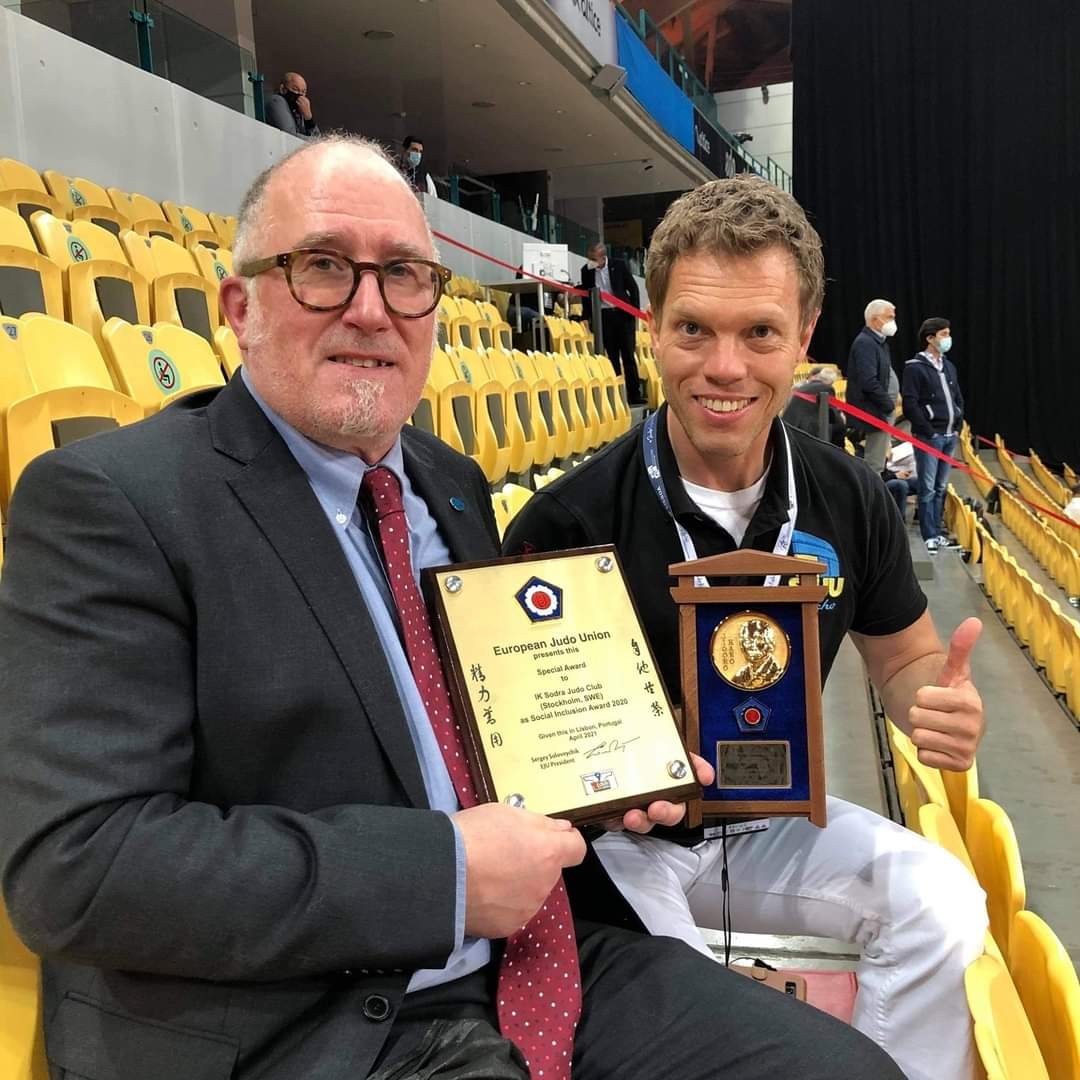
This weekend during the EJU European Judo Championships, the EJU Social Inclusion Award was granted to our Technical Director Tycho van der Werff (the 2019 award) and IK Sodra, the judo club of SNJU President Tomas Rundqvist (the 2020 award). SNJU is proud to have this important prize awarded to two of our board members, and it will certainly encourage us to keep up our work in the progression of Special Needs Judo. -
Swiss International SN Judo Festival

International Training Group 1 
International Training Group 2 
Rhinefall Waterfalls – Excursion 
Waterfall View 
Mixed, Mixed Team Event 
Go Green Team 
Opening Ceremony Dancers 
SN Referees
Last weekend (20-23/6) the SNJU proudly supported the Swiss International SN Judo festival in conjunction with Special Olympics Switzerland and the hosts, Uster Judo club.
Thursday 20/6
It was an incredible 4 days of inclusion, play, fun, sightseeing and competition. The event started on Thursday with the arrival of international teams from Romania, Ireland, Sweden, Netherlands, Germany and France. Two international inclusive training sessions were arranged by the hosts Judo club Uster and were run by SNJU directors James Mulroy and Cilia Evenblj. Fun and games was the topic of the day and a great session was enjoyed by all.
Friday 21/6
Friday morning it was time to see of the wonders Switzerland has to offer. With volunteer guides everyone boarded the train to see the magnificent Rhine fall, waterfalls. What an amazing trip with incredible views, great company and a soaking boat trip to the base of the waterfall.
In the afternoon it was off to the venue for check-in and the now infamous mixed, mixed international team event. This event mixes countries, players, coaches, weights and levels to create mixed mixed team who all compete together in a fun and friendly contest.
Dinner was served for all at Scout House where most of the visitors made their home for the duration of their stay. As the very tired athletes headed off to get some sleep, the coaches, referees and guests gathered for our seminars and workshops. In our quest to deliver new and interesting education seminars, James introduced a seminar on autism assistance dogs and their benefits and roles. He then handed over to parent Eamon who presented George the dog and informed every one of his and his children’s experience using a service dog. The seminar was certainly interesting and attracted a lot of questions. Next up was the topic of divisioning and the importance of the involvement of coaches and referees. This was expertly delivered by Cilia. Last on the list was the contest and play safety rules seminar delivered by James.
Saturday 22/6
And on to the main event… Saturday morning saw the arrival of the Swiss teams and the check-in and divisioning. The divisioning was led by Cilia and assisted by all the coaches as discussed the previous evening. The result of the divisioning was 24 beautifully created pools that were even and fair for the athletes. Competition started at 1.30 and was a beautiful display of friendship, skill, determination and judo spirit. The divisioning proved its worth with fair yet competitive pools in all categories.
After the medal presentation it was back to the scout house for an evening food, drink, fun and laughter, a great end to a great event. Congratulations to Cilia for a great run event and to everyone involved in the preparation and execution of a wonderful festival of judo.
-
SNJU plays major role in EJU Special Needs Judo Festival
Earlier this week, on the EJU Special Needs Judo Festival in Poreč, Croata, SNJU officials performed a comprehensive seminar on how to teach Judo to people with a disability. We are proud that SNJU played a major role in this event.
